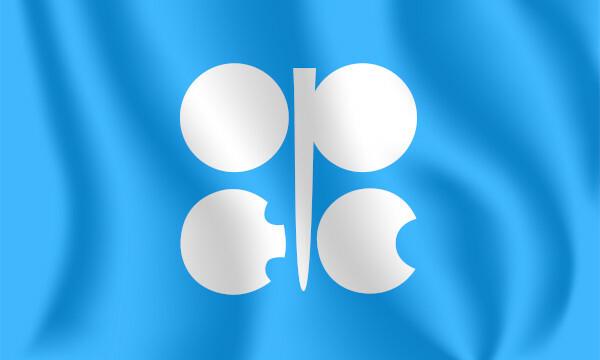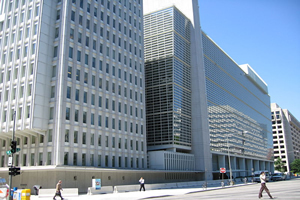THE Organization of Petroleum Exporting Countries (OPEC) was founded in September 1960 in Baghdad, Iraq. It is an organization that manages the affairs and interests related to the Petroleum and its exploration, production and export/import around the world.
Its members work together to control the prices of barrels of oil, aiming at competitiveness and stability in the oil market.
Remember that the acronym of this organization in English is OPEC - Organization of the Petroleum Exporting Countries.
Read too: Organization for Economic Cooperation and Development (OECD)
OPEC Role
In its statute, OPEC defends the “coordination and unification of the oil policies of the countries Members and the determination of the best means to safeguard their individual and collectively”.
In this way, it is an organization that ensures that oil prices from its member countries are practiced in a joint and balanced way..
Many view OPEC as a cartel that controls oil prices, production and distribution. However, for defenders that OPEC is not a cartel, the justification refers to some historical failures of this organization in controlling prices and in crises involving the
fossil fuel, like the crises of the 1970s.In any case, the organization operates in a cartelized manner, with strict control between member countries and their respective markets.
Do not stop now... There's more after the advertising ;)
OPEC Members
Since it was founded, OPEC has had several members, such as Indonesia, Ecuador and Qatar, which currently do not belong.
When it was created in 1960, OPEC had the participation of five countries, considered the founding countries:
- Islamic Republic of Iran
- Iraq
- Kuwait
- Saudi Arabia
- Venezuela
During the 20th and 21st century, other countries joined the organization:
- Libya (1962)
- United Arab Emirates (1967)
- Algeria (1969)
- Nigeria (1971)
- Gabon (1975)
- Angola (2007)
- Equatorial Guinea (2017)
- Congo (2018)

OPEC history
Founded on September 14, 1960 in Baghdad, Iraq, OPEC is a permanent intergovernmental organization, which was born with the objective of improving oil production in the world, with efficient and fair supply for those who consume and legitimate economic returns for producing nations.
This was to counteract the practice of the time, monopolized by the conglomerate of oil companies known as the Seven Sisters (Chevron, Exxon, Gulf, Mobil, Texaco, Shell and British Petroleum). This conglomerate exploited oil reserves paying low royalties in the localities that held such reserves and achieved large profits.
O combating the exacerbated profit of the Seven Sisters it was one of the reasons for the emergence of OPEC, which saw its member countries reach a prestigious and international standpoint when the subject was oil.
In the first decades of its life, in the 1960s and 1970s, OPEC played an important role in controlling prices and contributed significantly to the enrichment of its affiliates, like the countries of Middle East (Saudi Arabia, Kuwait and Qatar).
However, in the 1980s, the environmental theme gained strength in international debates. Because of this, OPEC had to revise its concepts of oil exploration to readjust to new times that were emerging.
In the last years, OPEC debated sustainable energy issues, but without losing the oil focus, its source of wealth. New countries are trying to join this select group, like Brazil, but still without success.
See too: USMCA - North American Free Trade Agreement
Importance of OPEC
We know that oil and its derivatives are the power supply and the most important combustion in the world, present in everyday life from a plastic cup to the most sophisticated cars. Because of this, OPEC, controlling the production, export and price of this fossil fuel, has a great power in world economic relations.

Any variation in price, even if minimal, affects the lives of billions of people, the economic growth of countries, and affects, directly or indirectly, the daily life of countless locations.
With all this power in hand, OPEC plays a key role on the globe, being accompanied by markets, stock exchanges and investors around the world.
However, despite having great importance and global influence, it is worth remembering that this organization acts to defend the rights of its members, even if this goes against the rights and benefits of the majority of the world's population, which makes critics of the organization say that it is an oligopoly much like the Seven Sisters.
OPEC Control Policies
As OPEC's objective is to control the production and price of oil in its member countries, the organization works directly with maximum quota of barrels of oil per day. Such action is to avoid/attenuate economic crises, with overproduction or shortage of the product.
This coordination of production in OPEC member countries can be considered positive in the sense that the price does not rise exorbitantly. However, it can be considered a cartel practice, even if the organization itself does not use this term, as the availability of the product would be offered in accordance with the interests of the producing countries.
Brazil in OPEC
O Brazil not part of OPEC. According to the Central Intelligence Agency of the United States (CIA), Brazil occupies 15th place in the ranking of the largest oil reserves in the world. A privileged position, but one that doesn't mean much when it comes to joining OPEC. This is because there are countries with more reserves than Brazil, such as the Canada (2nd in the ranking), who do not participate in the organization.
One of the justifications for Brazil not joining OPEC would be the cartelization of oil barrel prices. The country's past presidents have demonstrated against this practice, as it is something that makes oil more expensive for less developed nations.
In addition, in 1954, the Petrobras, a genuinely Brazilian company that was born with the objective of producing oil on Brazilian soil and not depend so much on transnational companies and, later, from OPEC countries.
Curiosities about OPEC
Note some fun facts about this world-powerful organization.
- Of the entire proven world reserve, 79.4% of it is in OPEC member countries.
- Venezuela is the country in the world with the largest oil reserves in the world, 25%, followed by Saudi Arabia, 22%, both OPEC member countries.
- The official language of OPEC is English.
- OPEC's first headquarters were in Geneva, at Switzerland. The headquarters are currently located in Vienna, Austria.

- There is an economic fund, the OPEC Fund, aimed at infrastructure investment policies in several countries. This fund was created in 1976 and is managed by 12 countries: Algeria, Ecuador, Gabon, Indonesia, Iran, Iraq, Kuwait, Libya, Nigeria, Saudi Arabia, United Arab Emirates, and Venezuela.
Also access: United Nations (UN)
solved exercises
Question 1 - (UFCG PB)
The year 2007 saw global warming appear in the mainstream media no longer driven by the environmentalists who had been addressing this issue for the past forty years. Hollywood surrendered to this “inconvenient truth” by awarding an Oscar to the documentary by former US Vice President, Mr. Al Gore. This, among other factors, helps to understand what is really going on: the appropriation of a cause - the global warming — by sectors that have so far sought to disqualify it and, together, disqualify all those who starred.
(PORTO-GONÇALVES, Carlos Walter. Another inconvenient truth – the new geography. In: Dear Friends, year XI, n. 34, Sept. 2007).
The text makes reference to the appropriaters and new protagonists of the cause of global warming. Among them are:
A) Brazilian small agricultural producers, who, stimulated by PRONAF credits, have produced most of the sugarcane needed to produce ethanol.
B) large landowners and large agricultural, oil and automobile business complexes, among others, organized in networks, which in the context current discussion and search for new energy sources, they see in ethanol a new profit stream and a new strategy for maintaining their powers.
C) Indians, rubber tappers and riverine populations in the Brazilian Amazon, who, when using forest resources without depredating it, they conserve the vegetation cover needed to absorb the greenhouse gases that cause warming. global.
D) OPEC countries, which, due to the scarcity and imminent depletion of their oil and natural gas reserves, have stimulated the expansion of ethanol production in their territories, to the detriment of the production of fuels of origin fossil.
Resolution
Alternative B. The great causes of global warming involve logging, overuse of fossil fuels and loss of biomes to large agricultural complexes such as soybeans in the Midwest Brazilian.
Question 2 – (UDESC SC - adapted) The extraction of minerals weighs on the economy of several countries in South America. Check the alternative that presents the largest oil producers in South America.
A) Bolivia and Argentina
B) Colombia and Ecuador
C) Brazil and Venezuela
D) Argentina and Peru
E) Brazil and Uruguay
Resolution
Alternative C. Of the countries mentioned, only Brazil and Venezuela appear in the list of the largest oil reserves in the world: 15th and 1st place, respectively, being the largest producers of this fuel in the continent.
Image credit
[1] Sodel Vladyslav / Shutterstock
By Attila Matthias
Geography teacher

